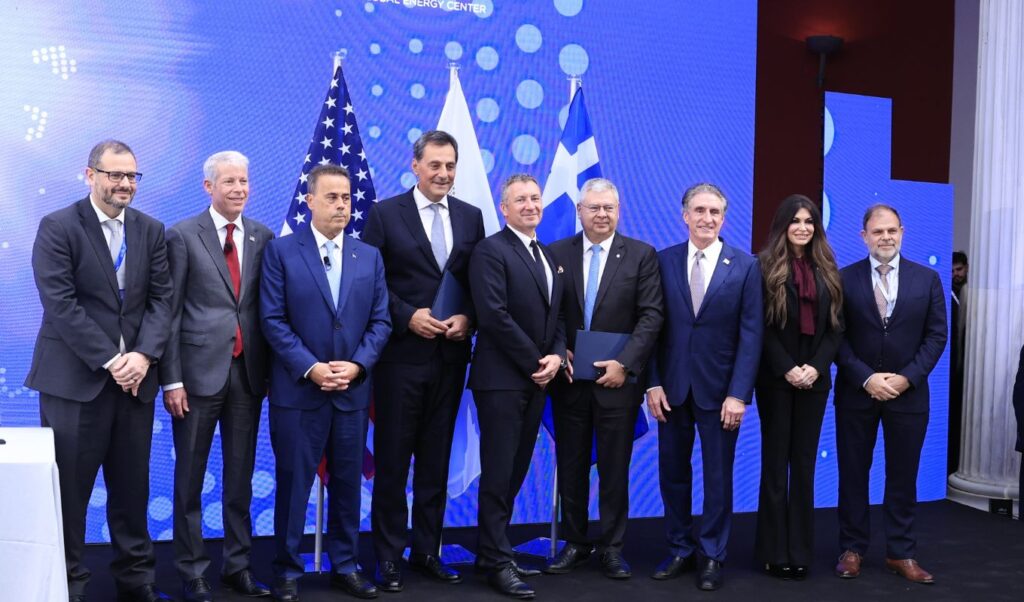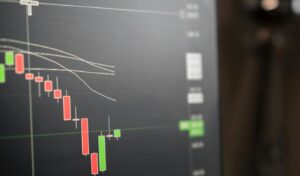Four decades after the last offshore drilling, Greece returns to its energy map, this time with the signature of ExxonMobil. The American company, taking over Block 2 in the Ionian Sea, northwest of Corfu, signals the beginning of a new era in domestic hydrocarbon exploration — an event that Environment and Energy Minister Stavros Papastavrou characterized as a “historic moment for the country’s future”.
Greece, from an energy transit hub, now aspires to become a natural gas producer. Block 2, considered the most mature for drilling, is estimated to potentially contain up to 200 billion cubic meters of natural gas. The timing is favorable, as natural gas remains a decisive factor in the geopolitical and energy strategy of nations.
The agreement between ExxonMobil, Energean and HelleniQ Energy is not limited to an investment partnership, but constitutes, as we read in Ioanna Kostadima’s report on energygame.gr, a bet on transforming a long-term plan into reality. If the explorations prove successful, the country will acquire a new energy role and strengthen its position as a stability factor in the Eastern Mediterranean.
“The Americans came because they saw a Greece that plans and moves forward,” emphasized Mr. Papastavrou. The total investment, if a commercially viable deposit is confirmed, is estimated to range between 5 and 10 billion dollars.
ExxonMobil’s investment plan and next steps for drilling
The plan’s development was revealed by John Ardill, Vice President of Global Exploration at ExxonMobil, on the sidelines of the 6th Partnership for Transatlantic Energy Cooperation (P-TEC) Summit at Zappeion. As he said, the investment size reflects the project’s importance and the company’s intention to bring cutting-edge technology and significant capital to the country for subsurface exploitation.
The consortium is distributed as follows: ExxonMobil 60%, Energean Hellas 30%, HelleniQ Upstream West Corfu 10%. The next stage involves completing the reprocessing of three-dimensional seismic data collected in 2022. The process will continue until the end of 2025, in order to identify areas with the greatest geological interest.
In 2026, environmental studies and technical approvals are scheduled to be completed, preparing the ground for drilling. ExxonMobil has committed to bringing a sixth-generation floating drilling unit to Greece, equipped with real-time monitoring systems for precise subsurface analysis.
The “Asopos-1” drilling and timeline
The first exploratory drilling, named “Asopos-1,” is scheduled for 2027. It will be carried out at a depth of approximately 4,000 meters, in a marine area where depths reach 1,500 meters. If results are positive, confirmatory drillings will follow to determine the deposit’s size and commercial viability.
Meanwhile, Energean has signed an agreement with Saipem for an exploration program at Israel’s Katlan deposit, which provides for two drillings at the “Zeus” and “Athena” targets. The contract includes an option clause for two additional drillings, a possibility that may also be utilized for Block 2, accelerating procedures.
If a deposit is confirmed, a phase of appraisal wells will follow before the final investment decision (FID) is made, which is estimated for 2029. The total development cost is calculated at 5–10 billion dollars and will involve subsea installations, pipelines and natural gas processing infrastructure onshore.
Production, according to Ardill, could begin after 2030, with a time horizon of 2030-2035, provided appropriate commercial and regulatory conditions are secured.
Developments in Crete
For the offshore blocks southwest of Crete, where ExxonMobil collaborates with HelleniQ Energy, analysis of three-dimensional seismic data completed last year is underway. Processing is expected to finish in the first half of 2026, when it will be decided whether exploratory drilling will be conducted at that specific location.
ExxonMobil’s dual presence in the Ionian and Crete reflects the company’s strategy to establish long-term energy presence in Greece, combining the country’s geological potential with Europe’s energy security needs.
Cooperation with the Greek government and RAE is considered crucial, while the possible connection with existing DESFA infrastructure and LNG export channels to the rest of Europe is already being studied.
P-TEC Summit proceedings
The first day of the 6th Partnership for Transatlantic Energy Cooperation (P-TEC) Summit at Zappeion brought together significant political and business personalities. The announcement of the Block 2 agreement was the day’s central event.
Interest now turns to the Summit’s second day, where developments are expected around the new company ATLANTIC – SEE LNG TRADE A.E., created by AKTOR (60%) and DEPA Commercial (40%).
Greece confirms its role as a strategic entry hub for American LNG into Europe, through agreements providing for natural gas transport to Bulgaria, Romania and Ukraine. The plan is supported by the U.S. International Development Finance Corporation (DFC), strengthening the transatlantic dimension of the venture. “By afternoon there will be announcements that will clearly show what we are pursuing,” said Alexandros Exarchou, CEO of ATLANTIC – SEE LNG TRADE A.E. and head of the AKTOR Group.




